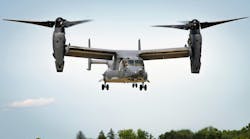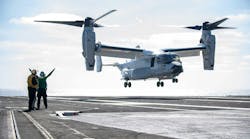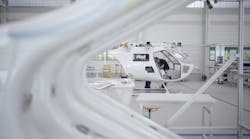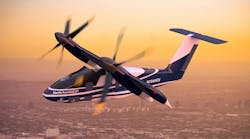The Russian Helicopters holding (part of Rostec State Corporation) and Chinese manufacturer Avicopter determined technical parameters of an advanced heavy-lift helicopter (AHH). During the international exposition China Helicopter Expo 2017 the companies negotiated on the financial side of cooperation on this project.
Under the intergovernmental agreement signed in 2016, the Russian Helicopters holding and Avicopter will co-develop the advanced heavy-lift helicopter to launch its serial production in People's Republic of China and meet demand at the Chinese market. The Russian Helicopters holding will invest technologies in the project and develop the technical proposal and certain machine systems on a contract basis. The intergovernmental agreement on AHH co-development was approved by Dmitry Medvedev, the Prime Minister of the Russian Federation, in February 2017.
“We managed to reach common ground with our Chinese partners on technical parameters of the AHH project. We have a clear vision of machine specifications. At the China Helicopter Expo we and our Avicopter colleagues conducted meaningful negotiations; as a result, we exchanged views on the financial issue of the project. The Russian side is willing to finish the pre-contract stage and plan signing of the contract at the end of this year,” said Andrey Boginsky, CEO, Russian Helicopters.
It is planned that in the joint project the Chinese side will arrange general organization of the AHH, including designing, constructing engineering development models, testing, certification, preparation, and serial production as well as promoting the helicopter to the market and work coordination.
JSC Russian Helicopters (part of Rostec State Corporation) is one of the world leaders in helicopter industry, the only developer and manufacturer of helicopters in Russia. The holding company was established in 2007. The head office is located in Moscow. The holding company is comprised of five helicopter plants, two design bureaus, enterprises for production and maintenance of components, aircraft repair plants and a service company providing after-sales support in Russia and abroad. Among the buyers of the holding company's products are the Defense Ministry of Russia, the Ministry of Internal Affairs of Russia, EMERCOM of Russia, and other state customers, Gazprom Avia and UTair airlines, as well as major Russian and foreign companies. In 2016, the revenue of Russian Helicopters under IFRS amounted to RUB 214.3 billion, its shipments totaled to 189 helicopters.
Rostec Corporation is a Russian corporation that was established in 2007 to facilitate the development, production and export of high-tech industrial products designed for civilian and military applications. The Corporation comprises over 700 organizations that are currently part of eleven holding companies operating in the military-industrial complex and three holding companies working in civilian industry, as well as 80 directly managed organizations. Rostec's portfolio includes well-known brands such as AVTOVAZ, KAMAZ, Concern Kalashnikov, Russian Helicopters, VSMPO AVISMA, UralVagonZavod, etc. Rostec companies are located in 60 constituent entities of the Russian Federation and supply products to the markets of more than 70 countries. In 2016 the consolidated revenue of Rostec reached 1 trillion 266 billion rubles, while the consolidated net income and EBITDA amounted to 88 and 268 billion rubles respectively. In 2016 the average salary in the Corporation was 44 thousand rubles. According to Rostec's strategy, the main objective of the Corporation is to ensure that Russia has a technological advantage in highly competitive global markets. Rostec's key objectives include the introduction of a new techno-economic paradigm and digitalization of Russian economy.



